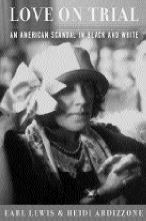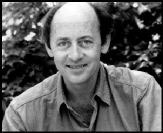At 70, Adrienne Rich has just written her 22nd book. To scan the list of publications prefacing her 17th collection of poems is to feel small jolts of recognition—one title recalling the moment when your sense of what it meant to be a daughter, wife, mother, self, or mind abruptly veered into dangerous new territory, and another evoking a whole decade of the American century. How bracing her tenacity has been, and how courageous her changes.
In 1951, at the age of 22, Rich received the coveted Yale Younger Poets Award for poems W. H. Auden patted on the back because they “are neatly and modestly dressed, speak quietly but do not mumble, [and] respect their elders.” Twelve years later her Snapshots of a Daughter-in-Law shocked readers with its broken prosodies and epiphanies of women’s experience in a sexist society. Diving Into the Wreck (1973), The Dream of a Common Language (1978), A Wild Patience Has Taken Me This Far (1981), Your Native Land, Your Life (1993), and The Dark Fields of the Republic (1995) have established Rich as an activist writer of impressive reach and power. Despite crippling rheumatoid arthritis and looming despair at the degradations of language and the sociopolitical scene at the millennium, she’s still here. Still talking.
Midnight Salvage: Poems 1995-1998 by Adrienne Rich W.W. Norton, $22
And still making waves: Two years ago Rich refused the president’s prestigious National Medal for the Arts because of what she called, in a speech at the University of Massachusetts, the fracturing of our social contract by “the omnivorously acquisitive few” who preside over “a dwindling middle class and a multiplying number of ill-served, throwaway citizens and workers.” While many readers honor Rich’s public stance against injustice, some deplore the entrance of such themes into her poetry, arguing that art must transcend the political to be universal and enduring.
In Rich’s case, what transcends politics is the voice at the center of her work: an ethical consciousness in the act of resolutely finding a way through terrible difficulties. Refusing to be distracted, she thinks and feels along the labyrinth, fully aware that what waits around the bend—barricade, abyss, torturer’s knife, knowledge—can kill the spirit. It can’t be foreseen or forestalled, either, without compromising the whole endeavor. Yet “Look: with all my fear I’m here with you, trying what it/means, to stand fast; what it means to move” (“Letters to a Young Poet”).
Midnight Salvage is muted and elliptical because the experiences of individuals and the forces impinging on them have become harder to pinpoint. They’re like water to a fish trying to identify the medium pressing evenly on all sides and supplying all sustenance. The home we live and breathe in is inchoately oppressive—a supersaturated marketplace where events, ideas, rights, governments, peoples, selves, health, oceans, the air, and the words that might tell them true are traded like consumables. Can we know the water we swim in? Rich writes less to galvanize or muster than to awaken.
So the poems read like bulletins from an elusive front, most of them linked in loose, bluesy sequences, and punctuated by gaps or paired colons reminiscent of empty boxes—for the disappeared, perhaps, for all the solid assurances that have melted into air. Brilliant glimpses remind us why we want to be awake and alive, like the osprey rising over foggy Tomales Bay and its young “in the windy nest/creaking there in their hunger” (“For an Anniversary”), and the older woman’s amazed, half-protective, half-exultant memory of her adolescent self (“Seven Skins”):
What a girl I was then what a body
ready for breaking open like a lobster
what a little provincial village . . .
what a book I made myself
what a quicksilver study . . .
What a girl pelican-skimming over fear what a mica lump splitting
into tiny sharp-edged mirrors through which
the sun’s eclipse could seem normal . . .
eager to sink to be found . . .
what a mass of swimmy legs
And though “You cannot eat an egg You don’t know where it’s been,” still
Unstupefied not unhappy
we braise wild greens and garlic feed the feral cats
and when the fog’s irregular documents break open
scan its fissures for young stars
(“Midnight Salvage”)
One or two catalogs seem facile, a few formal repetitions verge on sentimentality (“I’ll find you . . . I find you”; “I would look long . . . long I’d look”), but these are cavils. An original, urgent voice and a scrupulously precise, penetrating mind are still on the urgent prowl—the poet (as in “Plaza Street and Flatbush”) “seizing the light/of creation/giving it back to its creatures//headed under the earth.”
Adrienne Rich reads Monday, February 8 at First United Methodist Church at 7:30.
Judy Lightfoot teaches at Lakeside School. Her poetry chapbook, ‘Calling the Crow,’ was published by Brooding Heron Press in March 1998.







